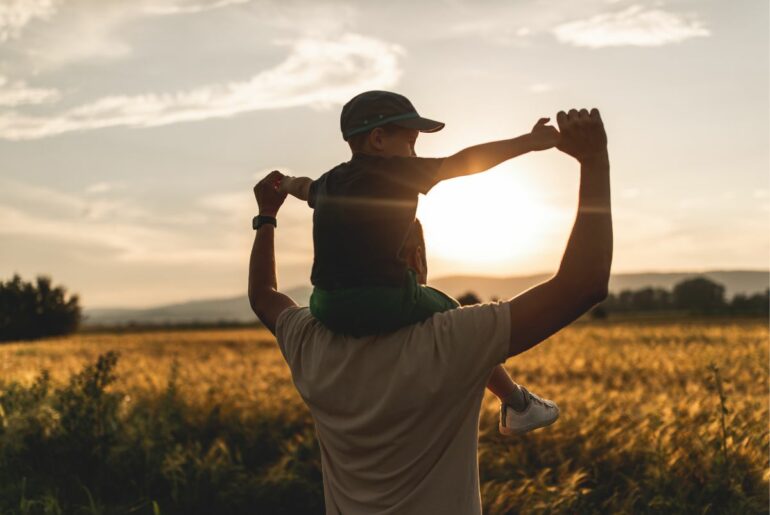As the impacts of climate change gradually become more noticeable, more and more people of all ages are becoming increasingly concerned about the future of our world. Impacts such as extreme weather, resource scarcity, and pollution are becoming more commonplace, and impacting more people each year.
As conversations about climate change become more common, kids are likely to hear about it and have questions. They may feel scared or anxious about how they could be impacted in the years to come. Parents can help their kids navigate this difficult topic and the emotions that come along with it. The Climate Mental Health Network recently shared some helpful guidance on talking about climate change with children in Courageous Conversations: Talking Climate Emotions with Kids.
Why should parents talk to their kids about climate change?
As Executive Director of climate change education organization ClimateMama, Harriet Shugarman, said in the latest Courageous Conversations episode, “You aren’t protecting them by hiding the truth, you protect them by equipping them with the knowledge, and then the skills, to cope with the knowledge they are given.”
Climate change is an increasingly unavoidable topic in households around the world as more and more people are feeling its impacts. Children will hear about climate change at some point — and it’s up to the adults in their lives to put it into context and guide them through their feelings about it.
Kids will also determine the future of our world, and they can be powerful agents of change in our society. Teaching them about climate change now can help them make more informed and responsible decisions as they get older — and even inspire them to take action to fight back against climate change.
How should parents talk to their kids about climate change?
The panel of experts in Courageous Conversations: Talking Climate Emotions with Kids shared some helpful tips for parents who want to talk about climate change with their kids —
- Ensure they feel safe. Start the conversation during a calm time of day when you have some downtime and can both be focused and present. If the conversation is sparked by extreme weather in your community or something on the news, let them know they’re safe with you right now.
- Give them space to share their thoughts. Ask them what they already know, how they feel about it, and what questions they have. Respond mindfully to what they say without overloading them with unnecessary or very scary information.
- Be honest, but positive. Feel free to be open about your own emotions about climate change using a calm and neutral tone — and be honest with them about the potential impacts if it’s left unchecked. But, you’ll also want to make sure they understand that lots of other people are also really concerned about climate change and working really hard to find solutions.
- Make it relatable. Use examples from their own lives to make climate change more understandable. If your kid loves Legos, for example, you could explain how a Lego block they throw in the trash could end up floating in the ocean. Climate change can feel like a huge, abstract problem to younger kids, so using relatable examples can make it more tangible.
- Focus on action. Let your kids know what actions they can take to help protect our environment. From cleaning up trash in your neighborhood to planting your own vegetables, there are lots of fun ways that families can reduce their impact on the environment. Giving kids tangible ways they can help out can reduce their anxiety about climate change.
Climate change is scary, but parents can provide a safe space for kids to express their feelings and fears, and empower them with the knowledge to make a difference. For even more tips on talking to your kids about climate change, check out this helpful guide.







